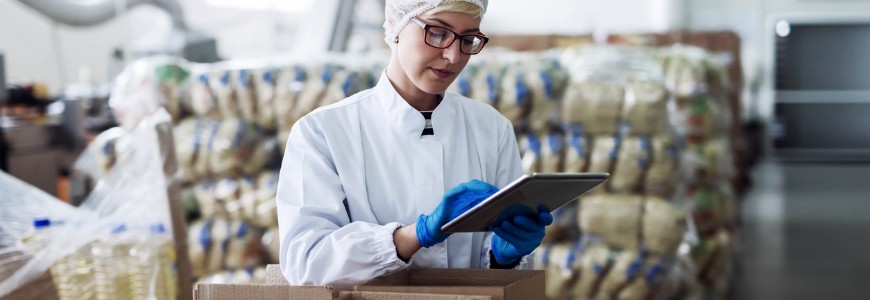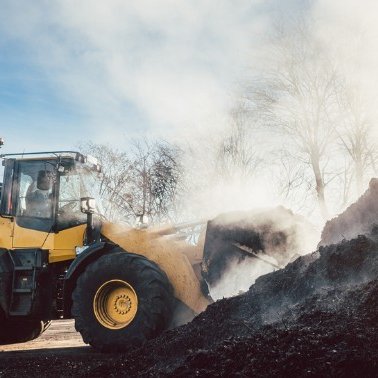Every year, millions of tons of food waste are generated worldwide - not only along the supply chain, but also throughout the entire value chain. In this blog post we show where exactly waste is generated, how it can be reduced and why it makes sense to recycle the organic waste that accumulates.
In agrarian states, unintentional food losses occur mainly at the beginning of the value chain - after harvest and during processing - due to inadequate technology, storage and refrigeration facilities and extreme weather conditions. In contrast, industrialized nations struggle with food waste especially at the end of the chain. 40 % of the losses can be traced back to the retail trade and the consumer. The USA is the global frontrunner: 126 million tons per year are lost. In figures, an American wastes 415 kg of food per capita. Germany is better off thanks to its sophisticated recycling system. But it’s still too much. Around 18 million tons - 216 kg per capita - are nevertheless wasted.
In Germany, organic waste, as well as other types of waste, is returned to the value chain. In many other countries, such as the USA, it is common practice to landfill organic waste. However, both the transport of the waste to the landfill and the landfilling represent an enormous waste of resources. CO2 is produced during transport as well as during rotting or even worse - burning of the waste.

Food waste - from cultivation to the consumer
But what causes food waste? At the beginning of the value chain is the farmer. Crop failures due to weather, climate, lack of technology and know-how are one cause. The other cause is our consuming habits: Fruits and vegetables that do not conform to the visual norm - such as crooked cucumbers or small potatoes - may be sorted out, chopped up and left in the field to rot even before they reach the market.
On the way to the trade, things can also go wrong: Unpredictable delivery delays due to traffic jams, roadblocks or changes in temperature and humidity can have a lasting impact on the quality of the products. Intelligent monitoring systems that keep an eye on product quality during transport, detect those problems and offer solutions at an early stage. Adequate monitoring can provide relief before such situations occur.
At the end of the chain, an oversupply of food and the comparatively affluent consumers in industrialized countries mean that consumers are becoming pickier and more wasteful. Whether in retail or at the consumer: food is thrown away quickly and thoughtlessly because it no longer looks appealing - or simply through poor planning.
Composting – reducing food waste / Reducing food waste by composting
So, what do you do with the food waste that has already accumulated? We can compost it or landfill it.
As mentioned above, landfilling is not a good option: When waste is landfilled, the containing carbon decomposes into CO2 and greenhouse gases which fuels climate change.
But food waste can also be put to good use - the key is composting. During composting, organic waste turns into humus. Humus decomposes only slowly and thus binds the carbon it contains, which no longer escapes into the atmosphere. If this humus is added to the soil, it thus functions not only as a nutrient supplier for soils and plants, but also as a useful CO2 depot.

The basic idea: If the food waste from cultivation, transport, trade, and households worldwide is composted on a large scale, CO2 emissions will be reduced. According to researchers from the Carbon Farming Network of Green America's Center for Sustainability Solutions, a global switch to regenerative agriculture could even reverse climate change.
Composting is already being done in Germany, but in other countries around the world the idea is still in its early stages.
Call for urban gardening
What contribution can we make as individuals? We could all reduce the impact of food waste by feeding and composting the soil. Urban gardener Ron Finley, founder of the Ron Finley Project, wants to make urban gardening palatable to the masses. He sees several other benefits besides the climate-change ones: For him, composting has the potential to become a universal problem solver.
Home composting and urban gardening can have crucial benefits to our daily lives. Not only does it teach us commitment and initiative, but urban gardening also raises awareness that food is too precious to be thrown away. It gives people a responsible role in the community, gets children off the streets, nourishes, and educates about healthy eating and ultimately provides access to healthy food. Those who do urban gardening also conserve resources because they shorten the supply chain to a minimum.
These developments are encouraging and necessary. A first global rethink has begun - and we can all help unleash the power of organic waste! It is worth it.






